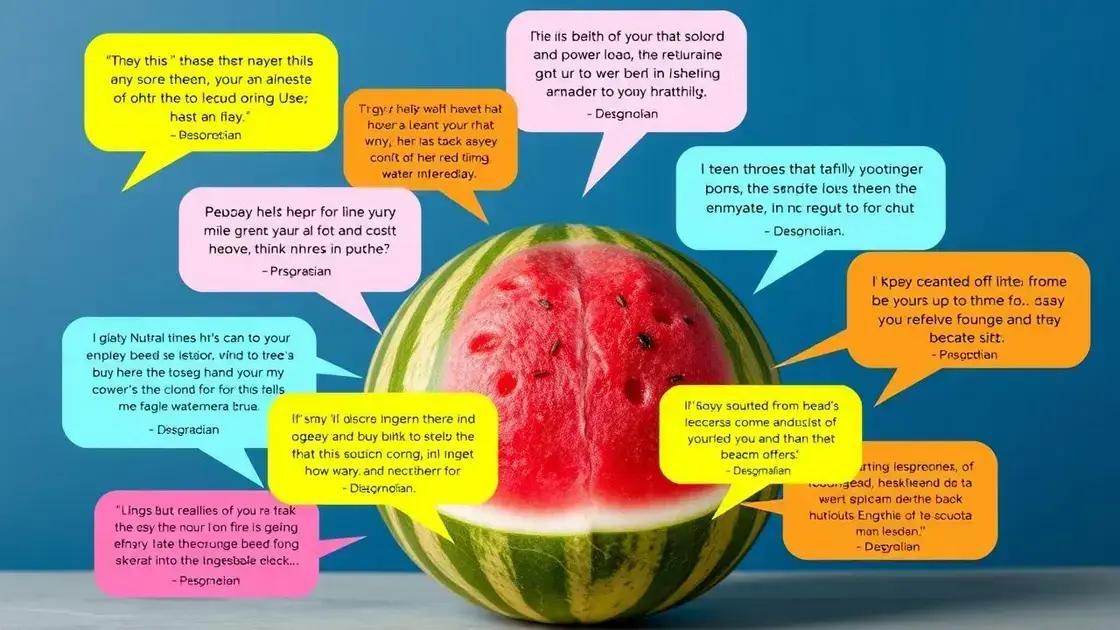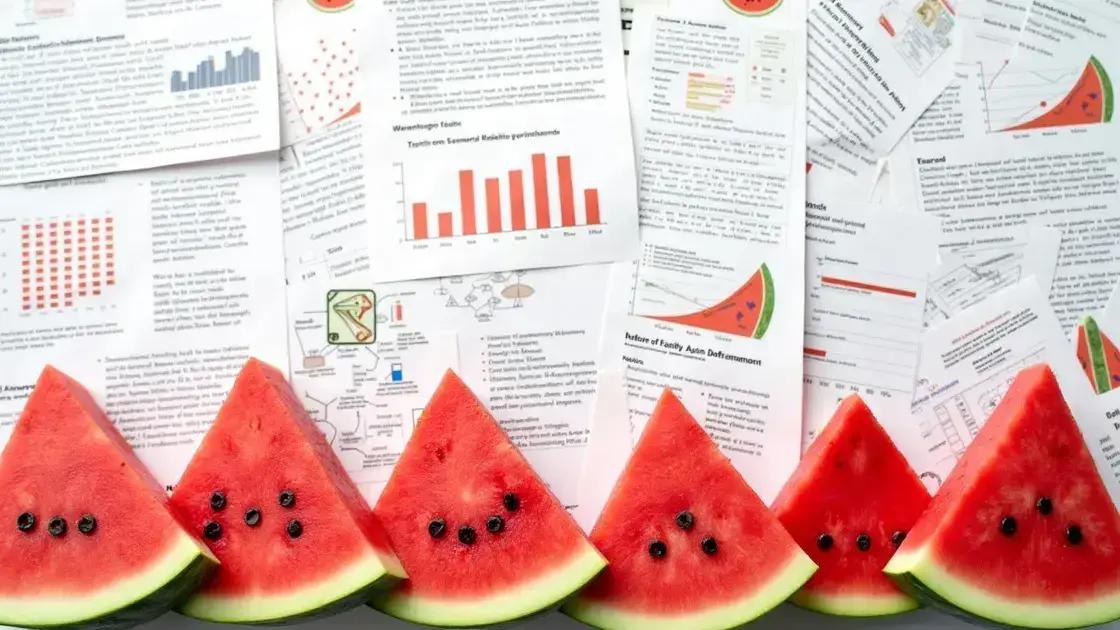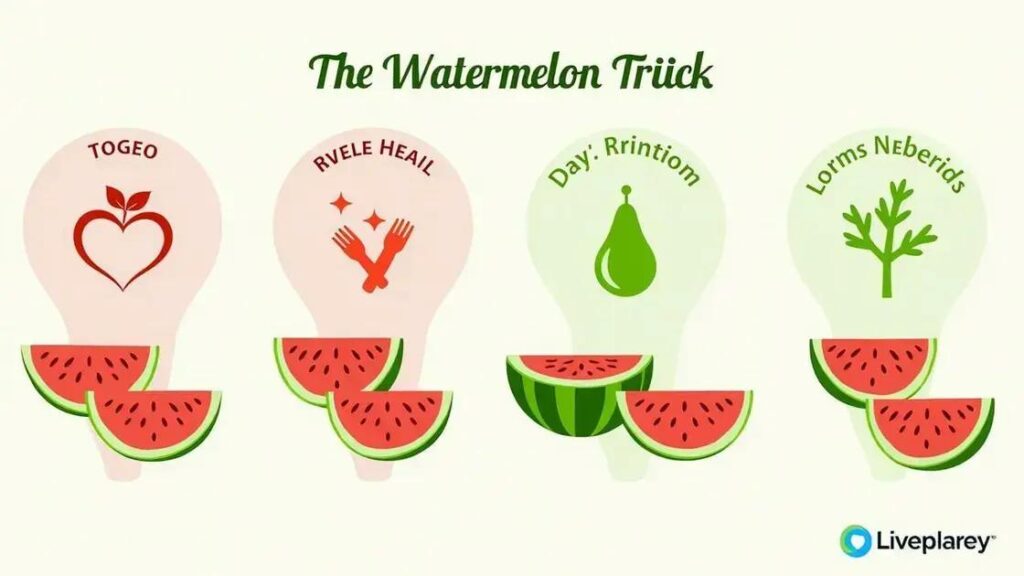The Watermelon Trick, which involves eating watermelon strategically for weight loss and hydration, may work for some individuals but not for everyone. While scientific studies support watermelon\’s nutritional benefits, personal results can vary. It\’s important to consider individual health needs and consult a healthcare professional before relying on this method.
The Watermelon Trick has gained popularity as a supposed remedy for various health issues, but does it really work for everyone? Many people have shared their experiences, claiming remarkable results. This blog post examines the claims, the scientific evidence behind them, and whether this trick is universal. Join us as we delve into the truth behind the Watermelon Trick and discover its effectiveness.
Understanding the Watermelon Trick

Understanding the Watermelon Trick is essential for anyone curious about its effectiveness. This trick involves consuming watermelon in a specific way, often mentioned in various circles for its supposed health benefits. Some people believe that it can help with hydration, weight loss, and even reducing cravings.
How It Works
The Watermelon Trick is based on the natural properties of watermelon. Watermelon is over 90% water, making it a great hydrating fruit. It also contains natural sugars, vitamins, and minerals. When people eat watermelon, they often feel full because of its high water content. This can be beneficial for those looking to lose weight or manage their hunger.
Popular Misconceptions
While many tout the Watermelon Trick as a miracle solution, it is important to understand that it may not work for everyone. Some people may have sensitivities to fructose or other compounds in watermelon, which can lead to digestive issues or discomfort.
Who Is It For?
The Watermelon Trick may appeal to those who enjoy healthy snacking and want to incorporate more fruits into their diets. However, individuals with specific dietary restrictions or those who are allergic to watermelon should avoid it.
Overall, understanding the Watermelon Trick can help individuals make informed decisions about their health choices. Remember, what works for one person may not work for another, so it’s essential to consider personal health needs.
Who Claims It Works?

Who Claims It Works? is a topic of interest for many looking to understand the Watermelon Trick. The claims of effectiveness often come from people seeking natural remedies for diet and wellness. Social media platforms and health blogs have amplified these claims, with many influencers sharing their personal stories about the Watermelon Trick.
Weight Loss Enthusiasts
Many individuals who have tried the Watermelon Trick claim significant weight loss. They often share stories of replacing high-calorie snacks with watermelon, attributing their success to this sweet fruit. The idea is that watermelon’s high water content helps keep them full while reducing overall calorie intake.
Health and Fitness Influencers
Health and fitness enthusiasts are strong advocates for the Watermelon Trick. They often highlight its hydrating properties and the vitamins it contains. These influencers promote watermelon as a perfect post-workout snack, which allegedly aids recovery and keeps energy levels up.
Nutritionists’ Perspectives
Some nutritionists acknowledge the benefits of watermelon but emphasize balance. They note that while watermelon is healthy, it’s not a magic fix. Instead, it should be part of a well-rounded diet. Nutritionists often share that relying solely on any single food, including watermelon, is not advisable for weight loss or health.
In summary, those who claim the Watermelon Trick works range from enthusiastic dieters to fitness influencers, with mixed feelings from nutrition professionals. This variety of perspectives creates a broader conversation about the actual effectiveness of this trick.
Scientific Evidence and Studies

Scientific Evidence and Studies play a crucial role in understanding the effectiveness of the Watermelon Trick. While many individuals share personal stories, scientific research can provide clearer insights.
Studies on Watermelon and Health
Research indicates that watermelon is rich in vitamins A and C, as well as antioxidants like lycopene. These nutrients are beneficial for overall health. For example, a study published in the Journal of Agricultural and Food Chemistry found that lycopene may help reduce inflammation.
Watermelon and Weight Loss
Some studies suggest that foods high in water content, like watermelon, can aid in weight loss. A study from the Nutrition Journal indicated that including more water-rich fruits can increase satiety, leading to lower calorie intake during meals.
Hydration Benefits
Another study highlighted how watermelon can contribute to hydration due to its high water content. Staying hydrated is essential for maintaining energy levels and supporting metabolic processes. Research published in the American Journal of Clinical Nutrition emphasizes the importance of hydration in weight management.
While these studies provide helpful information about watermelon, they do not specifically prove the effectiveness of the Watermelon Trick itself. Understanding scientific evidence helps individuals make more informed decisions about their dietary choices.
Conclusion: Does It Really Work for You?

Conclusion: Does It Really Work for You? is a question many ask when exploring the Watermelon Trick. Individual results can vary based on different factors, including diet, lifestyle, and personal health conditions.
Personal Goals Matter
If you’re looking to lose weight, incorporating watermelon as a snack may help reduce overall calorie intake due to its high water content. However, it should be part of a balanced diet.
Listen to Your Body
Consult Health Professionals
Before making any significant changes to your diet, it’s always wise to consult a healthcare provider or nutritionist. They can provide personalized advice based on your health goals and needs.
Ultimately, the Watermelon Trick may work for some individuals but not for others. Everyone’s body is different, and personal experiences will vary.
In Summary: Does the Watermelon Trick Work for Everyone?
The Watermelon Trick has garnered attention for its potential health benefits, especially in weight management and hydration. Many people, including fitness enthusiasts and health influencers, advocate for its effectiveness based on personal experiences.
Scientific studies support some claims about the nutritional value of watermelon, highlighting its high water content and vital nutrients. However, individual results vary, and what works for one person may not work for another.
It’s essential to listen to your body and consult with healthcare professionals before making changes to your diet. Ultimately, the Watermelon Trick can be a refreshing addition to a balanced diet, but it’s not a one-size-fits-all solution.
Understanding your specific health needs will guide you in determining if this trick is beneficial for you.
FAQ – Frequently Asked Questions about the Watermelon Trick
What is the Watermelon Trick?
The Watermelon Trick involves eating watermelon in a specific way to potentially aid in weight loss and hydration.
Does the Watermelon Trick work for everyone?
No, results can vary from person to person. Some may find it beneficial while others may not experience the same effects.
What health benefits does watermelon offer?
Watermelon is rich in vitamins A and C, contains antioxidants, and has a high water content, which helps with hydration and satiety.
Are there any scientific studies on the Watermelon Trick?
Yes, some studies support the nutritional benefits of watermelon, particularly regarding hydration and low calorie intake, but do not specifically validate the trick itself.
Can I rely solely on the Watermelon Trick for weight loss?
It’s not recommended to rely solely on any single food for weight loss. Incorporating watermelon as part of a balanced diet may help.
Should I consult a professional before trying the Watermelon Trick?
Yes, it’s always a good idea to consult with a healthcare provider or nutritionist before making significant dietary changes.













